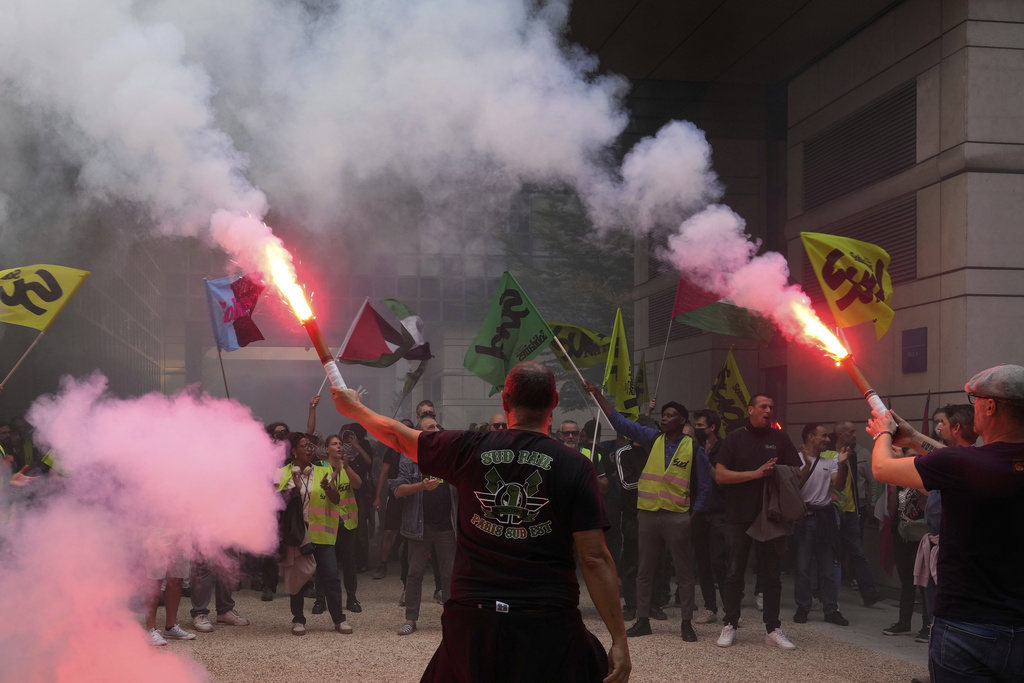Two years after Hamas’ October 7, 2023, massacre in Israel, antisemitism has surged into what experts describe as a global crisis — spreading across continents, entering mainstream discourse, and showing no signs of slowing.
A new report released by the Combat Antisemitism Movement (CAM) paints a grim picture of the post–October 7 world, documenting 13,339 antisemitic incidents worldwide between the attack and October 1, 2025. The data shows a dramatic escalation that researchers say represents the largest surge in antisemitism in modern history.
“The Hamas massacre was not only an attack on Israel; it was a turning point for Jews everywhere,” said Sacha Roytman Dratwa, CAM’s CEO. “Two years later, the wounds have not healed — and the hatred has not faded. What followed was the largest surge in antisemitism in modern history — and that surge has not slowed. It has deepened, spread, and been excused.”
According to the report, the final three months of 2023 nearly matched the total number of antisemitic incidents recorded in all of 2022. The trend accelerated sharply through 2024, which saw more than 6,300 incidents, double the previous year’s total.
In the United States, antisemitic acts on university campuses nearly tripled — from 249 in 2022 to 742 in 2024 — as college protests, harassment, and vandalism surged in the wake of the Gaza war.
By early October 2025, CAM had already recorded over 5,100 incidents, with projections suggesting that the total could reach 6,800 by year’s end.
The incidents tracked range from violent assaults and synagogue vandalism to harassment, intimidation, and public calls for violence. CAM researchers described a normalization of antisemitic rhetoric across media and politics that has made open hostility toward Jews “socially and politically acceptable in ways unseen in decades.”
“This is no longer a Jewish problem. It is a moral test for humanity,” Dratwa said. “When Jews are targeted with impunity, every democratic value is endangered. Silence is complicity — and silence is exactly what hatred feeds on.”
He warned that the spread of antisemitism has broader implications for democratic societies, calling it “the frontline battle for truth, freedom, and human dignity itself.”
The release of the CAM report coincides with renewed global attention to antisemitic violence. On Thursday, two British Jews were killed when a Syrian-born British citizen rammed his car into mispalelim outside a Manchester shul on Yom Kippur and began stabbing victims before being shot dead by police.
CAM’s findings echo a separate analysis published in September by the Jewish People Policy Institute (JPPI), which warned that antisemitism since October 7 has reached levels “unseen in generations” and is undermining the resilience of Diaspora Jewry.
“This is a troubling and alarming report with many challenges,” said Israeli President Isaac Herzog, who received the JPPI’s report in Jerusalem. “What’s most important for us is Jewish resilience — the ability of all communities to function and flourish amidst these challenges, to keep the centrality of Israel in their heart and in their deeds, and most importantly, to see our hostages back home and an end to the war.”
“The danger,” Dratwa said, “is not only in the hate itself, but in how many have learned to tolerate it.”
(YWN World Headquarters – NYC)











